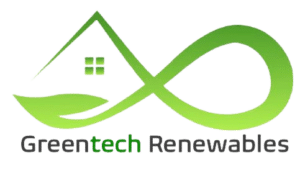UK's Warmth Initiatives allocate £1.5 billion in Help to Heat funding, emphasizing energy efficiency and addressing fuel poverty.
The Home Upgrade Grant (HUG) schemes provide up to £700 million until 2025 for tailored energy upgrades.
The Social Housing Decarbonisation Fund (SHDF) promotes carbon reduction and supports green employment.
Eligibility requirements entail income verification and energy performance ratings.
Companies offer incentives for energy-efficient enhancements and eco-friendly heating solutions.
Discover more about these initiatives for a sustainable future.
Table of Contents
ToggleFunding Overview and Allocations

The UK government has allocated £1.5 billion for Help to Heat funding initiatives. This includes the Home Upgrade Grant (HUG) schemes and the Social Housing Decarbonisation Fund (SHDF). These initiatives focus on increasing energy efficiency, reducing fuel poverty, and cutting carbon emissions in homes not connected to the gas grid and social housing.
The funding aims to improve energy performance standards in residential properties, contributing to a more sustainable housing sector.
Home Upgrade Grant Schemes
The Home Upgrade Grant Schemes in the UK focus on improving energy performance in off-grid homes. These schemes provide financial aid for energy efficiency upgrades in eligible homes with low incomes and an EPC rating below C.
Local authorities manage the schemes with funding of up to £700 million under HUG 2 until March 2025. Landlords must contribute to upgrade costs for both private and social housing.
Customized upgrades are tailored to each home's specific energy efficiency needs, aiming to enhance performance and reduce energy consumption effectively.
Social Housing Decarbonisation Fund (SHDF)

The Social Housing Decarbonisation Fund (SHDF) in the UK aims to reduce carbon emissions and improve energy efficiency in residential properties.
The fund focuses on upgrading social housing to EPC C standard to combat fuel poverty.
It supports green jobs, enhances the retrofit sector, and creates employment opportunities in the sustainable energy industry.
Local authorities, charities, and housing providers can apply for SHDF funding until March 2025.
This initiative plays a crucial role in driving carbon reduction efforts and promoting a more sustainable future for residential properties in the UK.
Eligibility and Application Process
Understanding eligibility requirements and application processes is crucial for those interested in benefiting from Heating Grants initiatives in the UK. To qualify for the Home Upgrade Grant (HUG), homeowners and landlords must meet specific criteria, including income verification, energy performance ratings, and being off the gas grid. Landlords must also contribute to upgrade costs.
The application for the HUG scheme is facilitated through local authorities. Similarly, the Social Housing Decarbonisation Fund (SHDF) necessitates applicants to meet criteria such as being connected to the gas grid. Eligible entities for SHDF funding include local authorities, charities, and housing providers.
For detailed information on available funding and application procedures, individuals should reach out to their respective local authorities.
Company and Product Information

Detailed information about the company and its wide range of products and services is crucial for potential applicants seeking information on Heating Grants initiatives in the UK.
As part of the Heating Grants Galore program, the company offers installer incentives to promote participation in energy-efficient upgrades. The company provides boiler credit options to help homeowners and landlords access modern and environmentally friendly heating solutions.
Clients can take advantage of a referral program and various incentives while ensuring that installers are certified, customer-reviewed, and compliant with industry regulations. Detailed product information is available, including specifications on new boilers, solar panels, and flexible credit options.
The company's services include next-day installations, various service packages, and an extensive selection of offerings.
Frequently Asked Questions
Can I Apply for Funding if I Live in a Property With a Gas Connection?
Funding eligibility for energy efficiency upgrades in properties with gas connections may vary based on specific criteria. To determine eligibility requirements and funding opportunities, contact local authorities.
Are There Any Penalties for Landlords Who Do Not Contribute to Upgrade Costs?
Landlords who do not contribute to upgrade costs may face penalties such as non-compliance fines, legal actions, and reputational damage. Regulations require landlords to financially contribute to improving energy efficiency in properties.
How Can I Find Out if My Local Authority Is Participating in the Schemes?
For details on participation in the Home Upgrade Grant and Social Housing Decarbonisation Fund schemes, contact your local authorities. Income levels, energy performance ratings, and gas grid connection determine eligibility for the application process.
Are There Specific Deadlines for Spending the SHDF Funding?
The Social Housing Decarbonisation Fund (SHDF) must be allocated by either March 2025 or September 2025 for specific projects. To ensure the funding is utilized within the stipulated timeframe, eligible applicants like local authorities, charities, and housing providers should adhere to these deadlines.
What Type of Green Jobs Are Supported by the SHDF Initiative?
The Social Housing Decarbonisation Fund (SHDF) initiative promotes the creation of green jobs in sectors like renewable energy by upgrading social housing to EPC C standard. This contributes to reducing carbon emissions and fostering job growth in sustainable industries.



